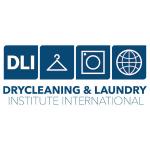CHICAGO — There are a lot of moving parts to owning and operating a drycleaning business, and those just beginning can often feel at a loss of what to do next. What comes as second nature to veterans in the industry can be confusing — or overwhelming — to those new to the field.
In Part 1 of this series, we asked industry veterans for answers they wish they would have known when first starting out in the field, and today, we’ll continue by examining some of the first steps new cleaners should take to give them the best chance of success.
Getting Up and Running
Starting a business requires a lot of time and energy from the owner, and those who aren’t prepared for this could be in for a rude awakening, says Brian Butler, president of Columbus, Ohio-based Dublin Cleaners and a third-generation cleaner.
“It is a business that you have to show up and actively manage — at least until you can scale it enough that you can pay somebody to show up and actively manage,” he says. “You hear about ‘passive investments’ — this is the 180-degree opposite.
“In our case, we are doing thousands of custom jobs every day, and each person is going to want an ideal outcome that might be different from another’s. So, it’s extremely active. This is custom work, and with custom work, you need ownership and highly incentivized management, very close to the ground level.”
Jennifer Whitmarsh, who opened Snappy Dry Cleaning in Williamsville, New York, in November 2022, agrees with Butler’s assessment.
“Whether you are starting out with a ton of knowledge about the industry or not, you still have to be present,” she says. “It’s a balancing act. We often talk about how you need to delegate, and that you can’t do everything yourself. However, when you’re a startup, like I am, there’s not necessarily a bunch of people to delegate to — there’s not a line out the door.”
After the initial surge of getting a company operational, Butler believes that one of the first goals a new cleaner should have is to transition from the day-to-day work of cleaning into performing the jobs only a leader can do.
“Grow to a point where you cover your fixed costs to create some kind of cash flow,” he says, “and then from there, make vigilant efforts to make yourself less necessary in the production flow. Until you can get up above that business, you are just sort of floating in the current — you can’t be working on strategic items when you’re unloading the machines and mucking out the stills.”
The Winning Mindset
The owner’s attitude often can determine the business’ ultimate success. Butler urges owners — both new and experienced — to pay attention to their mindset, because there’s a lot riding on it.
“I’m all in, and success is my only option,” he says, “and that probably applies to almost any business. Check your excuses at the door and clear your calendar, because when you’re little, you’re everything. When you’re new, you’re almost always little. Even if you buy into an existing business that has large volume, you’ve got a big nut to cover, because you’ve borrowed the money from somewhere or taken it from your own savings.”
For Whitmarsh, she’s found that their mindset is really the only thing under an owner’s complete control.
“Stay positive, stay motivated, stay driven, and don’t worry about your ‘competition,’” she says. “Just do what you know. If you’re so worried about what everyone else is doing, then you can’t be focusing on what you’re doing and where you’re going. Keep your head down, but keep your eyes open.”
Come back Thursday for the conclusion of this series, where we’ll look at building networks of peers and the power of goal setting. For Part 1 of this series, click HERE.
Have a question or comment? E-mail our editor Dave Davis at [email protected].















































































































